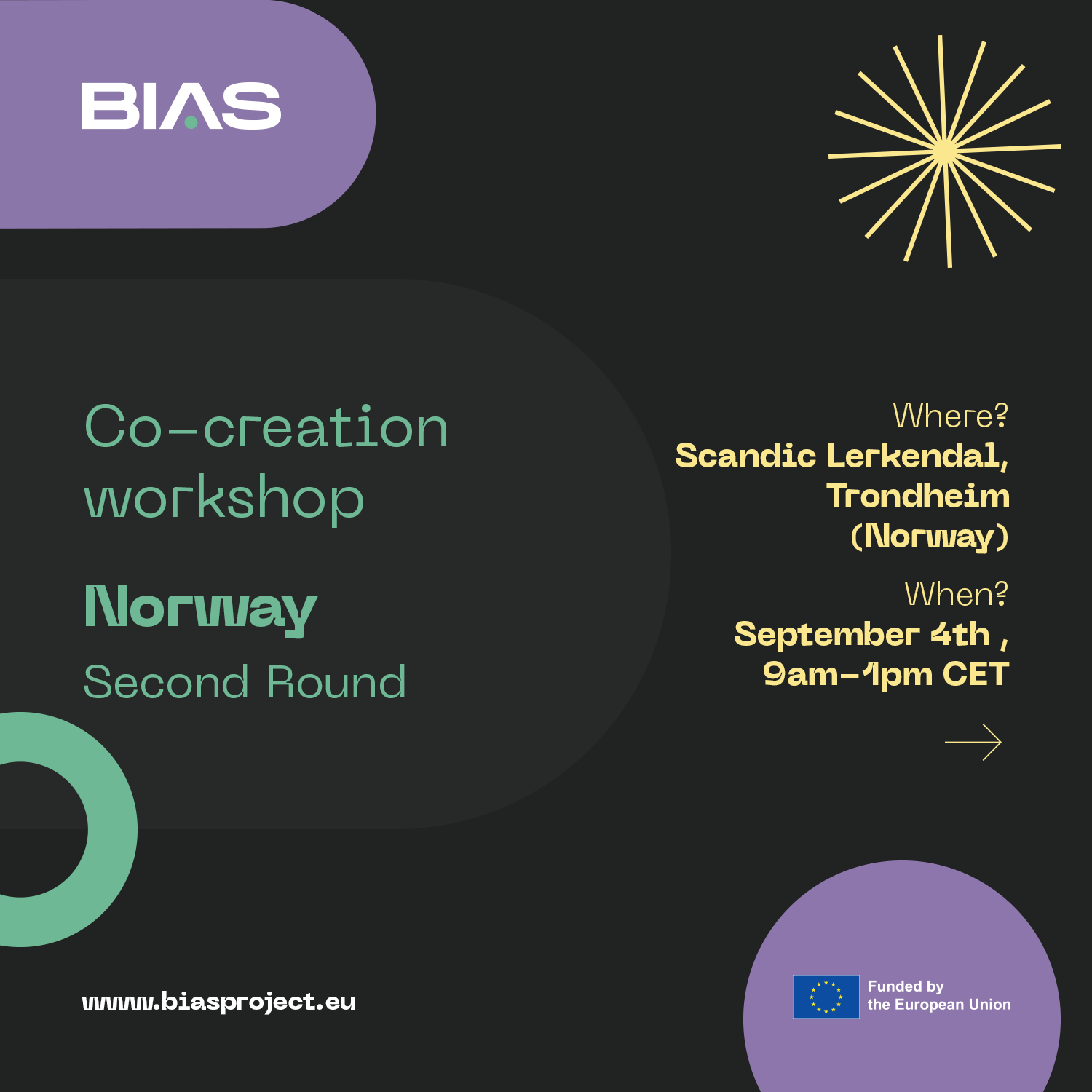4th December 2023
The NTNU team successfully organised the second co-creation event, held on September 4th at the Scandic Hotel. From HR managers, AI developers to legal experts and philosophers, experts from different fields gathered on a cold Norwegian autumn day to discuss fairness in the HR recruitment process and participated in a series of co-creation activities related to the development of the AI tool “Debiaser.” Shan Wang and Roger A. Sørra hosted the workshop, assisted by Silvia Ecclesia, Öznur Karakas, Mark William Kharas, and Joakim Andreas Karlsen Sæthre.
Roger firstly gave a succinct introduction to the overall BIAS project, followed by a detailed explanation of the principles of procedural fairness in the field of HR recruitment/selection. Based on their professional background and practical experiences, participants ranked the above-mentioned principles and shared their thoughts on the ranking results. The ensuing discussion revealed the myriad factors influencing one’s perception of fairness: the sector of employment (public or private), the job level, and the role in recruitment (candidate or recruiter) all played a pivotal role in shaping interpretations of fairness. Despite these varied perspectives, a common thread emerged—a shared concern for the individual experience, underlining the importance of personal narratives within different contexts. These diverse interpretations epitomise the essence of fairness: a profound respect for differences, serving as the bedrock of humanity amid the intricate processes of screening and comparison. As one participant commented on the “non-discrimination” discipline, the recognised top discipline among all in the vote, non-discrimination should not be considered a discipline but the result if practitioners follow the other disciplines. In the same way, fairness is not a guideline but the outcome if personal interpretations have been achieved.
The discussion on the abstract concept of fairness thus laid a foundation for the upcoming co-creation activities on the requirements for AI tools in recruiting. Guided by facilitators, participants embarked on a brainstorming journey to explore the potential usage and design of the Debiaser. Although it was a little bit difficult for participants from a non-technical background to understand the mechanism of artificial intelligence, the diverse composition of each group has made creative ideas possible. As HR practitioners put forward their demands coming from their daily work, AI developers would explain the feasibility and further translate the idea into a technical perspective. A keyword “multiplicity” came out during this stage, indicating the possibility of multiple artificial actors in the human-AI interaction. One group came up with the idea that AI should provide multiple scores for the same CV so that the human recruiter can have multiple references, and the other group mentioned that it is better to have three types of AI (one to check the job description match, one as blind recruitment, and the other for extra scoring), making them supervise each other to guarantee fairness. This creative thinking illuminated potential solutions for mitigating bias in the hiring process. While bias may persist through various human actions, participants remained resolute, refusing to accept bias as an inherent trait but rather choosing to negotiate with the diverse actors enabled by the technical capabilities of artificial intelligence.
If one word could encapsulate this co-creation workshop, it would be “diversity.” The pursuit of fairness and diversity served as the driving force behind participants’ involvement, while their diverse professional backgrounds enriched the contributions to the workshop. The multitude of perspectives on fairness offered fresh insights into creating a world that values and acknowledges different stories—a quintessential aspect of co-creation. The collaborative efforts of HR managers, AI developers, legal experts, and philosophers underscored the immense potential of diverse viewpoints in addressing complex issues like bias in HR recruitment. By embracing the multitude of interpretations and solutions, these dedicated individuals demonstrated their unwavering commitment to fostering fairness, honoring differences, and ultimately striving for a better world.
